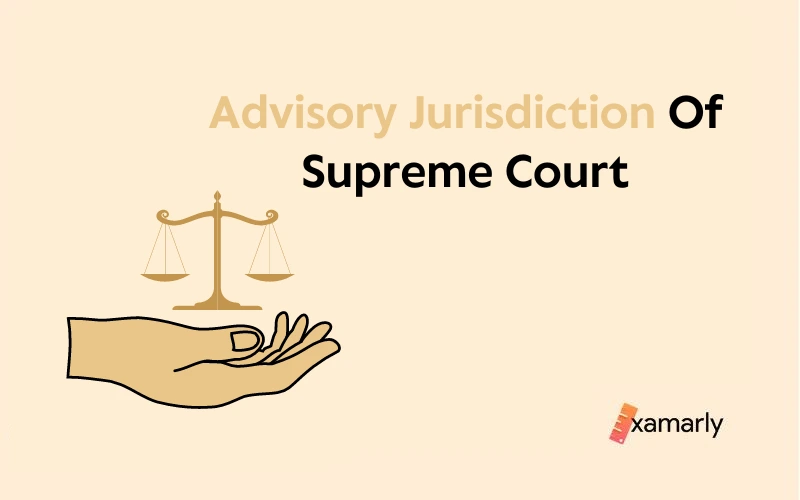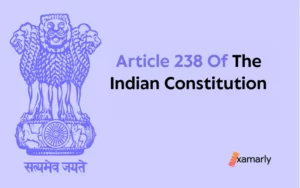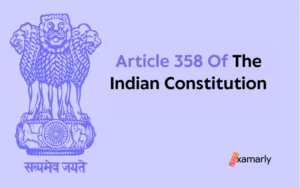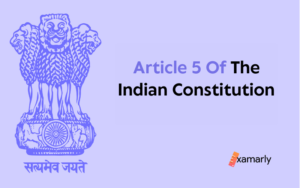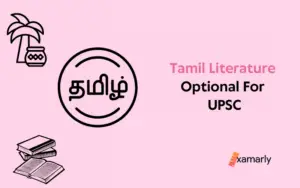Article 143 of the Indian Constitution mentions the advisory jurisdiction of the Supreme Court. This article elaborates on one of the three jurisdictions, namely the advisory jurisdiction.
The Supreme Court is India’s highest court. Along with the appellate and original jurisdiction, it also has advisory jurisdiction. What does that mean?
The President is required by Article 143 to submit to the Supreme Court any matters that are not expressly covered by its original jurisdiction but fall under its advisory authority nonetheless.
The Apex Court’s opinion or judgment is advisory in nature and not obligatory, so it is up to the President to decide whether to follow the opinion or not.
To put it briefly, the President is not compelled to implement the Supreme Court’s ruling.
The advisory authority of the Supreme Court is crucial to the protection of the citizen’s fundamental rights and for the maintenance of secularism in the country. Hence, having in-depth knowledge about this advisory power guaranteed in the earlier-mentioned article is important for any UPSC aspirant.
Additionally, this topic is a part of the UPSC Syllabus of Indian Polity. Rest assured this piece of content will surely help in your UPSC Exam Preparation.
- Supreme Court and its Jurisdiction
- What is the Advisory Jurisdiction of the Supreme Court?
- Cases under Advisory Jurisdiction
- Advisory Judgement
- Advisory Functions
- Conclusion
- FAQs
- Which Article of the Indian Constitution bestows an advisory jurisdiction to the Supreme Court?
- Was Article 143 evoked in the Cauvery Dispute Tribunal case?
- Why was the Babri Masjid case turned down by the Supreme Court of India?
- What Article 143 of the Indian Constitution spells forth?
- What is consultative jurisdiction?
Supreme Court and its Jurisdiction
Supreme Court or Apex Court is India’s highest and final appellate court. Its jurisdiction is divided into three branches with a reference under Articles 131, 133 to 136, and 143 of the Indian Constitution.
Relatable posts:
- Article 131 of the Indian Constitution
- Article 133 of the Indian Constitution
- Article 136 of the Indian Constitution
Appellate Jurisdiction
Essentially, the Supreme Court is an appeals court that reviews decisions given by subordinate civil courts.
The types of matter where Appellate Jurisdiction is practiced is catering to appeals on
- constitutional matters
- civil matters
- criminal matters
- special leave.
Thus, the Apex Court has appellate jurisdiction in the cases mentioned above.
Original Jurisdiction
Original jurisdiction deals with any dispute between:
- the Indian Government and State/States
- State and State/States
- two or more opposing States.
These question of law or facts involves disputes catering to legal rights. Furthermore, the reference under Indian Constitution’s Article 32 grants it jurisdiction in circumstances where there is a need to enforce or protect the citizen’s Fundamental Rights.
Advisory Jurisdiction
In terms of the Supreme Court, it is bestowed with advisory functions. Read on to learn more about the advisory jurisdiction of the Supreme Court and various advisory proceedings and judicial reviews that are relevant to Indian legal matters.
What is the Advisory Jurisdiction of the Supreme Court?
The SC of India has been given advisory jurisdiction thanks to Article 143 of the Constitution of India.
The term “Advisory jurisdiction” refers to “the Supreme Court’s authority to render an opinion on questions presented to it by the Indian President, either of his own motion or at the request of either House of Parliament or a State Legislature.”
This jurisdiction is another name for consultative jurisdiction.
President can seek the help of the Supreme Court on the 2 matters stated below:
- If at any time, it does seem to him that a question of law or a factual issue has emerged or is about to emerge and is of public importance that an expedited resolution should be obtained, then the President may submit it to the Apex Court for application for review and report.
- Any pre-constitutional tender, arrangement, promise, responsibility, or other similar actions that could lead to a dispute.
In the first case, the Supreme Court can decide to issue or not issue an advisory opinion to the President., but it must do so in the second. In both instances, the judgment or opinion issued by the Supreme Court is of an advisory nature, meaning that it is neither mandatory nor binding.
As a result, the President has the option either to follow or disobey the order. The President may seek the Supreme Court’s advice on any matter of public interest or law, according to the main tenet of this jurisdiction.
15 references made by the Indian President to the Apex Court for advisory jurisdiction in matters until 2019. These are:
- Delhi Laws Act (1951)
- Kerala Education Bill (1958)
- Berubari Union (1960)
- Sea Customs Act (1963)
- Keshav Singh’s Case on the charge of contempt of Uttar Pradesh State Assembly and Legislature’s privileges (1964)
- Presidential Election (1974)
- Special Courts Bill (1978)
- Jammu and Kashmir Re-settlement
- Cauvery Water Disputes Tribunal or Cauvery Dispute Tribunal (1992)
- Rama Janma Bhumi case (1993)
- The procedure for consultation that the Indian Chief Justice would use (1998)
- The Center’s and States’ legislative authority over natural gas and liquefied natural gas (2001)
- Whether the Election Commission’s decision to postpone the Gujarat Assembly Elections is lawful (2002)
- Punjab Termination of Agreements Act (2004)
- The ruling in the 2G spectrum dispute and the requirement to auction natural resources across all industries (2012)
Also read:
Cases under Advisory Jurisdiction
Re Delhi Laws Act Case
The Re Delhi Laws Act Case was the first case to reach the Supreme Court through this jurisdiction. With regard to delegated legislation, the SC in this matter considered the lawfulness of a statute.
The case was presented before a panel of seven judges, all of whom held differing opinions regarding the outcome of the case.
Although all of the judges concluded that the legislature has the authority to delegate some lawmaking authority to the executive branch, they were split on the degree to which this authority might be given.
The bench generally voiced two opinions:
- Any amount of delegation of the Parliament’s legislative authority is subject to the restriction or requirement that the delegation not result in the effacement or renunciation of the Parliament’s legislative authority.
- It was not possible to delegate to another body the “essential” legislative duty of the Parliament, which included creating policy and making it into a legally obligatory code of conduct.
Ismail Faruqui v Union of India
A five-judge bench of the Supreme Court argued in Ismail Faruqui v. Union of India that the Presidential reference asking the Court’s view on whether there was formerly a temple where the Babri Masjid afterward erected was needless and against the notion of secularism because it favored one religious sector over another and thus doesn’t need to be answered.
In Special Reference No. of 2002, the Apex Court ruled that it was entirely within its purview to respond to and advise the President in a reference made pursuant to Article143(1) if the matters mentioned are likely to come up again in the future, are of public significance, or if the Supreme Court has not yet rendered a ruling on the issue.
Cauvery Dispute Tribunal Case
A tribunal was set up by the Central Government in the Cauvery Dispute Tribunal case. This was done to look into the conflict between Tamil Nadu and Karnataka related to the Cauvery River.
The tribunal’s ruling mandated that Karnataka provide a certain quantity of water to Tamil Nadu.
The government of Karnataka passed an ordinance that gave them the authority to disobey the order issued by the Tribunal, as a result of which they disobeyed the order and refused to honor the judgment that had been rendered by the Tribunal.
In an effort to settle the argument, the President referred the subject to the Supreme Court so that they may render a decision regarding it.
The Supreme Court determined that the questioned ordinance was unlawful since the Karnataka Government functioned as its own adjudicator, in contradiction to the concepts of natural justice and the Inter-State Water Dispute Act of 1956.
Advisory Judgement
The Indian President may ask the Supreme Court for its verdict on a particular matter in accordance with the Indian advisory judgment. The “Presidential Reference” is another name for this procedure.
It can be seen that if the president believes that a situation of public concern has arisen and that the Supreme Court’s opinion is required, he can refer the case to the Supreme Court. It’s also worth noting that the Supreme Court can answer the query if it appears to be of public importance.
Advisory Functions
The Supreme Court has advisory jurisdiction. Article 143 of the Constitution of India specifies that the court can advise the president on any matter of public importance in judicial administration.
Advisory jurisdiction covers any issue that has become of public interest. The president can also ask the SC for its thought on any legal question that involves public interest. It is this process that demonstrates the supreme court’s ability to support lower courts.
The Supreme Court of India’s advisory powers constitutes an important aspect of its functioning. The Indian Constitution grants it this authority. Article 143 describes the Supreme Court’s judicial functions. It advises the President on issues of public concern and the rule of law.
Conclusion
To recapitulate, the Supreme Court of India has been given the authority to issue advisory opinions on cases presented to it by the Indian President. According to Article 141, the Apex Court’s ruling is not imperative to the Indian President.
As the country’s highest legal institute, the Supreme Court of India is expected to render an advisory opinion on any legal subject requested by the President or any other authority. Reference under Article 143 of the Indian Constitution grants this authority.
FAQs
Which Article of the Indian Constitution bestows an advisory jurisdiction to the Supreme Court?
As stated in Article 143 of the Indian Constitution, the SC has the power to provide advisory opinions.
Was Article 143 evoked in the Cauvery Dispute Tribunal case?
Yes. Cauvery river flows through Karnataka and Tamil Nadu. The central government-appointed Cauvery Water Dispute Tribunal issued an interim ruling requiring Karnataka to transfer a specific amount of water to the state of Tamil Nadu. Karnataka government resented this decision and brought forth an Ordinance supporting their action. The Tamil Nadu government objected to this. So, in accordance with Article 143, the President requested the Supreme Court’s judgment. The subsequent opinion was that the Karnataka Ordinance was unconstitutional as it goes against the decision of the Tribunal appointed under the 1956 Inter-State Water Dispute Act.
Why was the Babri Masjid case turned down by the Supreme Court of India?
This action was based on the doctrine of secularism. In the Babri Masjid case, the President sought the Supreme Court’s advisory opinion by invoking Article 143 However, the court rejected it since it violated the doctrine of secularism mentioned in our Constitution’s Preamble (Ref: Ismail Faruqui Vs Union Of India). This decision catered to the sentiments of various religious communities living in India and declined its jurisdiction.
What Article 143 of the Indian Constitution spells forth?
The President of India is given the authority to consult the Supreme Court in accordance with Article 143 of the constitution. The President is allowed by the Constitution to ask the Supreme Court for guidance on two different categories of issues:
i) a dispute based on a pre-Constitutional contract, agreement, covenant, engagement, or equivalent instrument;
ii) a question of law or the public fact that has arisen or is likely to develop.
What is consultative jurisdiction?
When a lower court or a constitutional authority requests assistance from the Supreme Court on a legal matter, advisory jurisdiction exists. Advisory jurisdiction and consultative jurisdiction are synonyms.


